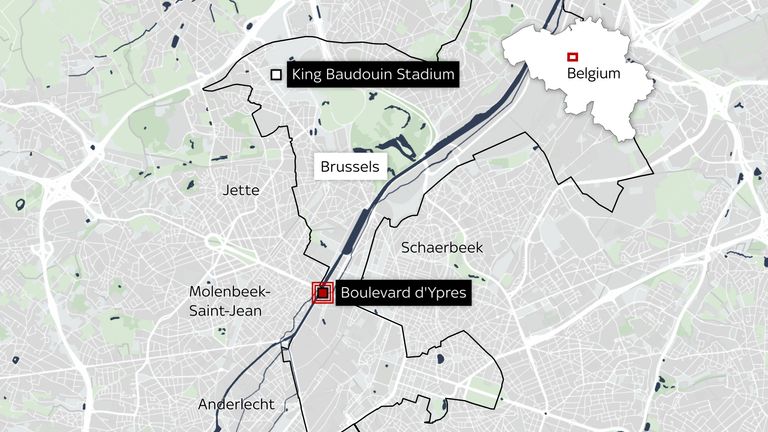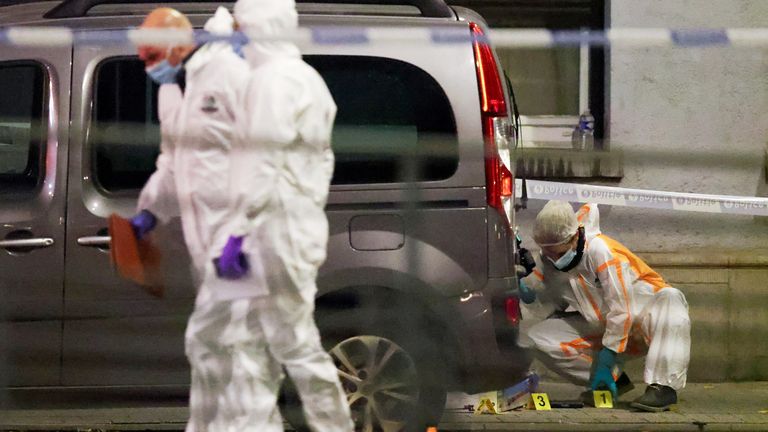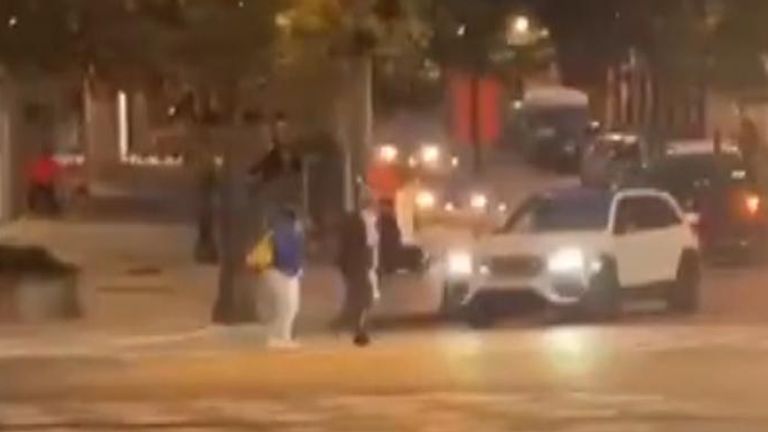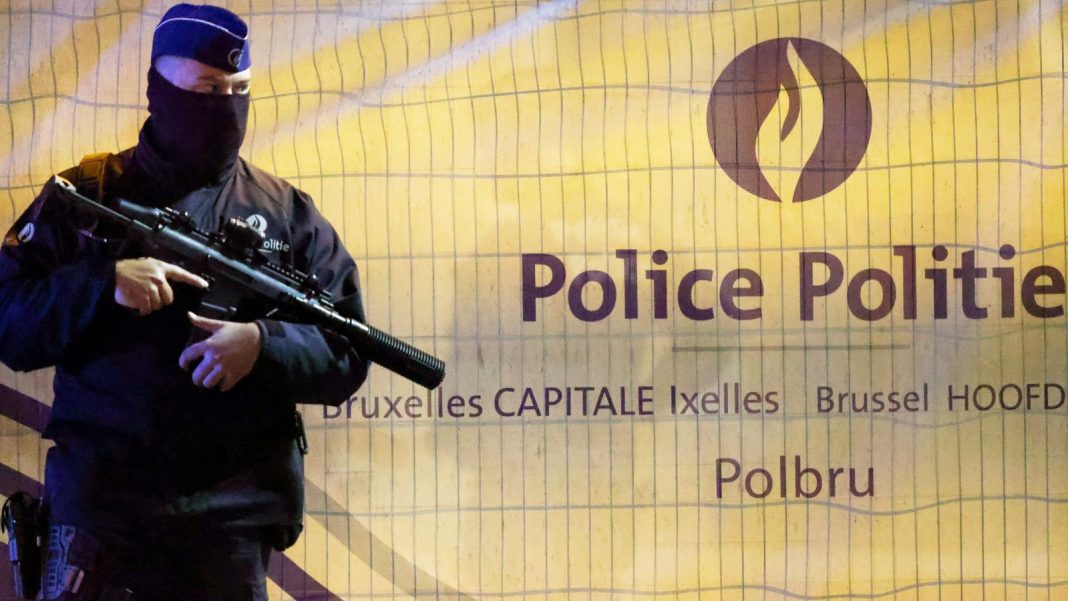Two Swedish people were shot dead and a third person was wounded in an attack in Brussels last night.
A man who was suspected of having carried out the attack has been shot by police.
Here’s what we know about what happened.
An officer stands guard as Belgian police secure the area after a shooting in Brussels
The shooting
Two people were killed and one was injured when a gunman opened fire on Monday night.
After the shooting, the gunman escaped, leading to a manhunt across the Belgian capital.
The shooting took place about three miles (5km) from the stadium where Sweden were due to play Belgium in a Euro 2024 qualifier.
It happened shortly after 7pm local time – around 45 minutes before kick-off – causing the match to be called off at half-time.
More than 35,000 fans were kept in the King Baudouin Stadium as armed officers searched for the attacker.
One Belgian newspaper said a witness heard the gunman shout “Allahu Akbar” – “God is great” in Arabic – before the shots were fired.
Another video, reported to be of the incident – which has not been verified by Sky News – appeared to show the gunman in a fluorescent orange jacket and a white helmet chasing a man into a building before shooting at him.
As well as the two Swedes who were killed, a local taxi driver sustained non-life-threatening injuries.
Shortly after the shooting, a man who claimed to be the gunman appeared on social media in a video in which he claimed to be a member of the Islamic State (IS) terrorist group and a “fighter for Allah”.
He also claimed he had carried out the attack in “revenge in the name of Muslims”.

A map showing the location of the shooting and the King Baudouin Stadium in Brussels
Suspect shot after manhunt
Belgian authorities raised the terror alert to its highest level in the capital as they searched for the gunman, who was at large on Monday night.
There was an increased police presence, particularly for Swedish people and institutions, and police warned the public to be extra vigilant and avoid unnecessary travel.
The man suspected of the attack was shot in a cafe in Brussels on Tuesday morning, Belgium’s interior minister Annelis Verlinden said.
The automatic rifle found close to the person who was shot was the same weapon as the one used during Monday’s lethal attack, the minister told Belgian broadcaster VRT TV.

Police at work at the shooting scene
In the immediate aftermath of the shooting, there had been some confusion about whether the man who had been shot was the suspect, as prosecutors said they were awaiting confirmation.
But the mayor of Brussels told BFMTV that “it would appear that the suspect has been neutralised”.
Mayor Philippe Close said he did not know the state of the suspect’s health, but added the police had to “use force” to arrest him.
According to the mayor, the arrest took place in Schaerbeek, in the city’s northeast.
Please use Chrome browser for a more accessible video player

0:32
Moments before fatal Brussels shooting
Who is the suspected attacker?
The attacker has been described as a 45-year-old Tunisian man.
He has been named by Belgian media as Abdesalem L.
According to Vincent Van Quickenborne, Belgium’s justice minister, the suspect was denied asylum in 2019.
He was known to police and had been suspected of involvement in human trafficking, living illegally in Belgium and of being a risk to state security.
Information provided to the Belgian authorities by an unidentified foreign government suggested that the man had been radicalised and intended to travel abroad to fight in a holy war.
But the Belgian authorities were not able to establish this, so he was never listed as dangerous.
The man was also suspected of threatening a person in an asylum centre and a hearing on that incident had been due to take place on Tuesday, Van Quickenborne said.
Belgian asylum state secretary, Nicole de Moor, said the man disappeared after his asylum application was refused so the authorities were unable to locate him to organise his deportation.
Read more from Sky News:
British sisters among those missing in Israel
France, Britain and the deep roots of Israel-Hamas conflict
Is there a link to the Israel-Hamas war?
Eric Van Duyse, spokesman for the federal prosecutor’s office, told reporters: “At this time, no element indicates a possible link with the Israeli-Palestinian situation.”







